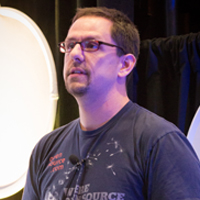These are the ten most read articles on FOSS Force for the month of April, 2014. 1. What Would You Do to Improve Linux? by…
Posts tagged as “Linux”
These are the ten most read articles on FOSS Force for the month of March, 2014. 1. Linux for Seniors 101 by Ken Starks. Published…
Here at FOSS Force we’re very proud to be an official media partner for the Great Wide Open conference that’ll be held in Atlanta next week. Because this is an enterprise conference, I don’t think I need to explain to those who work in IT the benefits of attending such an event. However, those of you who are primarily home users may think there’s nothing for you at a conference focused on professionals.
This isn’t true.
Any open source user, whether a professional or not, will benefit from attending an enterprise conference. Remember, the user is considered just as important to any open source project as those who develop and distribute the product. In other words, an enterprise conference is just as much about the user as the developer — even if the user is never likely to call Red Hat on the phone to order service contracts for the RHEL stack on a hundred servers.
Here are just a few reasons for a living room Linux user to attend an enterprise conference such as Great Wide Open:
Christine Hall has been a journalist since 1971. In 2001, she began writing a weekly consumer computer column and started covering Linux and FOSS in 2002 after making the switch to GNU/Linux. Follow her on Twitter: @BrideOfLinux
There is more to open source than software, hardware and the Creative Commons. Open source can also be seen as a guide for living life that is based on principles that go back to antiquity. Openness and sharing aren’t only for computers, electronics and creative writing.
Jason Hibbets is working to convince local governments to adapt open source ideas in their day to day operations. His book, “The Foundation for an Open Source City,” attempts to be a step by step guide for implementing open source ideas into government policies and solutions, based on his own experiences. He uses Raleigh, North Carolina, where he resides, as his example. He calls it the worlds first open source city. In a way, the small southern capital is his laboratory.

Christine Hall has been a journalist since 1971. In 2001, she began writing a weekly consumer computer column and started covering Linux and FOSS in 2002 after making the switch to GNU/Linux. Follow her on Twitter: @BrideOfLinux




 There were days past when I let my idealism and fervor dictate my thoughts and actions. I saw magnificent potential in Linux as a desktop operating system. With all my heart and soul, I evangelized for a competitive presence of Linux on the desktop. Like many idealists, I ignored the facts and barreled ahead as if by sheer will I could blow obstacles to dust that would dissipate in my wake.
There were days past when I let my idealism and fervor dictate my thoughts and actions. I saw magnificent potential in Linux as a desktop operating system. With all my heart and soul, I evangelized for a competitive presence of Linux on the desktop. Like many idealists, I ignored the facts and barreled ahead as if by sheer will I could blow obstacles to dust that would dissipate in my wake.



